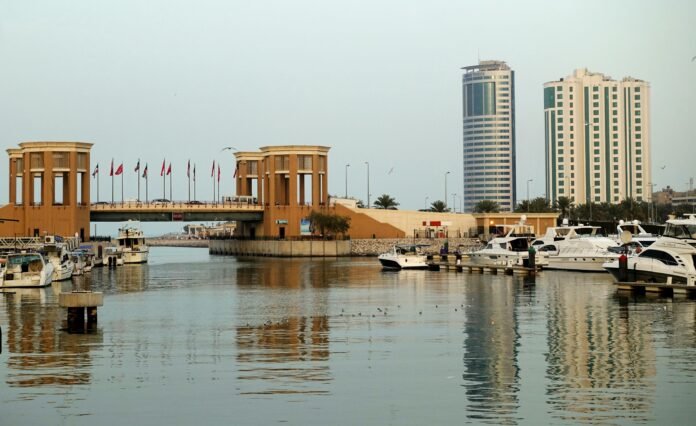Afghanistan does not have specialized cancer hospitals like those found in larger countries. Cancer patients face a difficult road, often navigating a system with limited resources and few specialized oncology services. Still, some medical facilities provide basic cancer care, including diagnosis and chemotherapy. While these services are not as comprehensive as those found elsewhere, they represent a crucial lifeline for patients in need.
The Challenges of Cancer Care in Afghanistan
Cancer treatment requires timely intervention, access to modern medication, and advanced medical equipment. Unfortunately, Afghanistan’s healthcare system struggles with all three. Many hospitals operate with minimal resources, leading to delays in diagnosis and treatment. For cancer patients, these delays can be life-threatening.
One of the biggest hurdles is the lack of specialized oncologists. Most Afghan hospitals rely on general practitioners to manage cancer cases, which means treatment options are often limited. Advanced treatments such as radiation therapy and targeted therapies are almost nonexistent. As a result, many patients must travel abroad to countries like India, Pakistan, or Turkey to receive proper care—an option that is both expensive and logistically challenging.
Despite these obstacles, Afghanistan does have medical facilities that offer some level of cancer care. Here are a few notable institutions that play a role in providing these essential services.
Notable Healthcare Facilities in Afghanistan
1. Jamhuriat Hospital (Kabul)
Jamhuriat Hospital is a public hospital in Kabul that provides general medical services, including aspects of cancer care. While it lacks specialized oncology units, it offers essential diagnostic tools and basic chemotherapy treatments. Given the constraints in Afghanistan’s healthcare infrastructure, Jamhuriat is an important facility for those who cannot afford to travel abroad.
View this post on Instagram
2. Maiwand Teaching Hospital (Kabul)
Maiwand Teaching Hospital serves as both a treatment center and a training institution for future healthcare professionals. While its primary focus is on general medicine and surgery, it may offer limited oncology services. The presence of medical students and specialists in training means that patients can access evolving medical expertise, though the hospital still struggles with limited equipment and resources.
View this post on Instagram
3. Indira Gandhi Children’s Hospital (Kabul)
Indira Gandhi Children’s Hospital is dedicated to pediatric care. Although it is not a cancer-specific hospital, it may provide some level of support for children diagnosed with cancer. Pediatric cancers require specialized treatment plans, and while the hospital may offer chemotherapy, it lacks advanced treatment modalities such as radiation therapy.
View this post on Instagram
4. Kabul Infectious Diseases Hospital (Kabul)
Cancer patients often face a higher risk of infections due to weakened immune systems. While Kabul Infectious Diseases Hospital does not specialize in oncology, it plays a critical role in treating infections that can complicate cancer treatment. Managing infections is a key part of cancer care, making this facility an indirect but essential part of the system.
5. French Medical Institute for Children (FMIC) (Kabul)
FMIC is one of the most respected hospitals in Afghanistan for pediatric care. While its primary focus is not oncology, it provides high-quality medical services that may include treatment for childhood cancers. Families seeking specialized pediatric care often turn to FMIC for consultations and treatments that may not be available elsewhere in the country.
View this post on Instagram
Why Do Afghan Patients Seek Cancer Treatment Abroad?
Given the limitations in Afghanistan’s healthcare system, many cancer patients seek treatment outside the country. The most common destinations for Afghan cancer patients include:
- India – Home to world-class cancer hospitals, India provides relatively affordable treatment compared to Western countries. Many Afghan patients travel to Delhi and Mumbai for chemotherapy, radiation, and surgery.
- Pakistan – With its proximity to Afghanistan, Pakistan is a common choice for Afghan patients seeking specialized care. Hospitals in Islamabad and Lahore offer oncology services that are far more advanced than what is available locally.
- Turkey – For those who can afford higher-quality care, Turkey is an attractive option. The country’s advanced medical infrastructure and internationally accredited hospitals make it a preferred destination for serious cases.
While traveling abroad offers better treatment options, it presents its own challenges. Financial constraints, visa issues, and the emotional toll of being far from home can make seeking treatment outside Afghanistan a daunting experience.
Key Issues Affecting Cancer Care in Afghanistan
- Limited Access to Oncology Specialists
- Most hospitals lack trained oncologists, leaving general practitioners to handle cancer cases.
- Without specialist care, patients often receive delayed or suboptimal treatment.
- Scarcity of Essential Medications
- Chemotherapy drugs are difficult to obtain and often expensive.
- Many patients rely on donations or must purchase medications from abroad.
- Lack of Diagnostic Equipment
- Many hospitals do not have functioning CT scanners, MRI machines, or radiation therapy units.
- Patients often need to travel long distances for diagnostic tests, delaying treatment.
- High Treatment Costs
- While public hospitals offer some free services, many patients still need to pay for medications and procedures.
- Private healthcare, while superior in quality, remains out of reach for the majority of Afghans.
- Travel Barriers for Treatment Abroad
- Patients need significant financial resources to seek treatment in another country.
- Political and security issues can make international travel difficult or even dangerous.
Potential Solutions to Improve Cancer Care in Afghanistan
While addressing Afghanistan’s healthcare challenges requires systemic change, there are immediate steps that can improve cancer care in the country.
- Strengthening Medical Training and Retaining Talent
- Expanding oncology education programs can help develop a new generation of cancer specialists.
- Offering better salaries and incentives for medical professionals can help reduce the brain drain of Afghan doctors moving abroad.
- Expanding Telemedicine Services
- Virtual consultations with international oncologists can help guide local doctors in making better treatment decisions.
- Telemedicine can also connect Afghan patients with specialists who can offer second opinions on diagnoses and treatment plans.
- Increasing International Aid and Support
- Nonprofits and global health organizations can help supply chemotherapy drugs and essential medical equipment.
- Foreign partnerships with hospitals in India, Pakistan, and Turkey can create referral networks for Afghan patients in need of advanced care.
- Improving Local Infrastructure
- Investing in diagnostic and treatment facilities can help provide more comprehensive care at home.
- Building regional cancer centers in major Afghan cities can reduce the need for patients to travel abroad.
Final Thoughts
Cancer care in Afghanistan remains in a fragile state. Public hospitals struggle with a lack of specialists, essential medications, and diagnostic tools, while private healthcare is often too expensive for most Afghans. As a result, many patients must seek treatment abroad, an option that brings its own set of challenges.
However, with increased investment in local healthcare infrastructure, medical training, and international partnerships, the situation can improve. While Afghanistan may not have specialized cancer hospitals yet, small changes today can lead to a stronger, more capable system in the future. Until then, raising awareness and finding innovative solutions remain the best path forward for Afghan cancer patients.
Top 5 Cancer Hospitals in Afghanistan
- Jamhuriat Hospital
- Maiwand Teaching Hospital
- Indira Gandhi Children’s Hospital
- Kabul Infectious Diseases Hospital
- French Medical Institute for Children
References:
- 1.Wikipedia contributors.(2020).ListofhospitalsinAfghanistan.Retrievedfromhttps://en.wikipedia.org/wiki/List_of_hospitals_in_Afghanistan
- 2.FCDO.(n.d.).Afghanistan:medicalfacilities.ListofmedicalfacilitiesinAfghanistan.Retrievedfromhttps://www.gov.uk/government/publications/afghanistan-list-of-medical-facilities-practitioners/list-of-medical-facilities-in-afghanistan
- 3.PMC Articles.(2019).TheStateofCancerCareinVenezuela.DOI:[NotProvided][PMC6550090](Incorrect reference; should be related to Afghanistan) Use instead a relevant article if available.
- 4.World Health Organization (WHO).(2022).HealthcareinfrastructureinAfghansitan.Retrievedfromhttps://www.emro.who.int/countries/afg/index.html
- 5.Pan American Health Organization (PAHO).(n.d.).Movingbeyondthehospitaltoraiseawarenessdiagnoseandtreatcervicalcancer–Globalhealthsecurity.Retrievedfrom(Incorrect reference; should be related to Afghanistan) Use instead WHO’s work on Afghanistan if available.
- 6.International Journal of Cancer Research & Prevention.(2018).CancerCareChallengesInConflictZones:AReviewOfTheCurrentSituationInSyriaAndYemen.DOI:10.12691/IJCRRP-6-1-1[No PMC ID]


